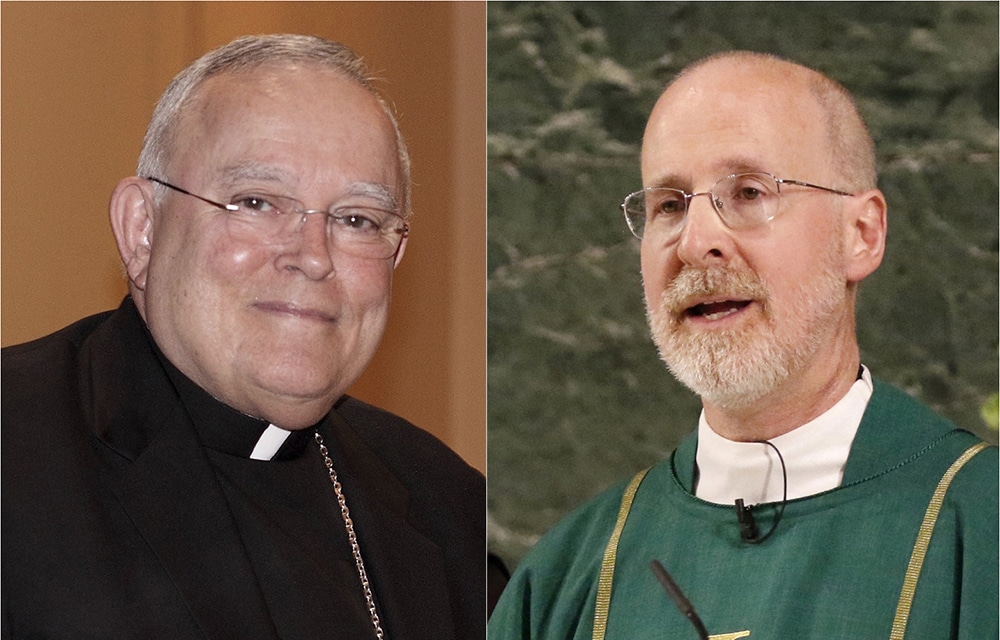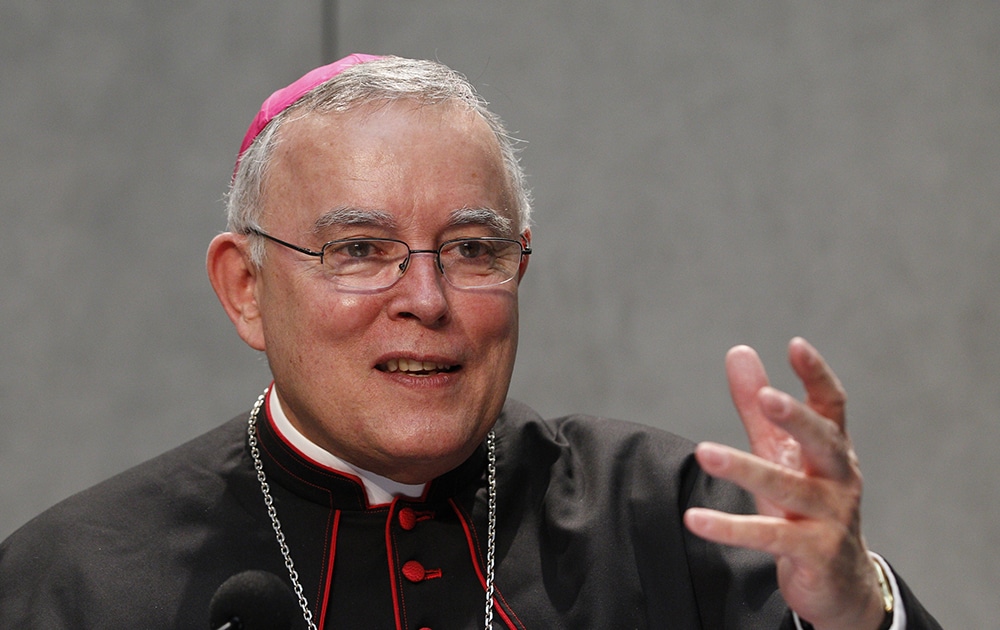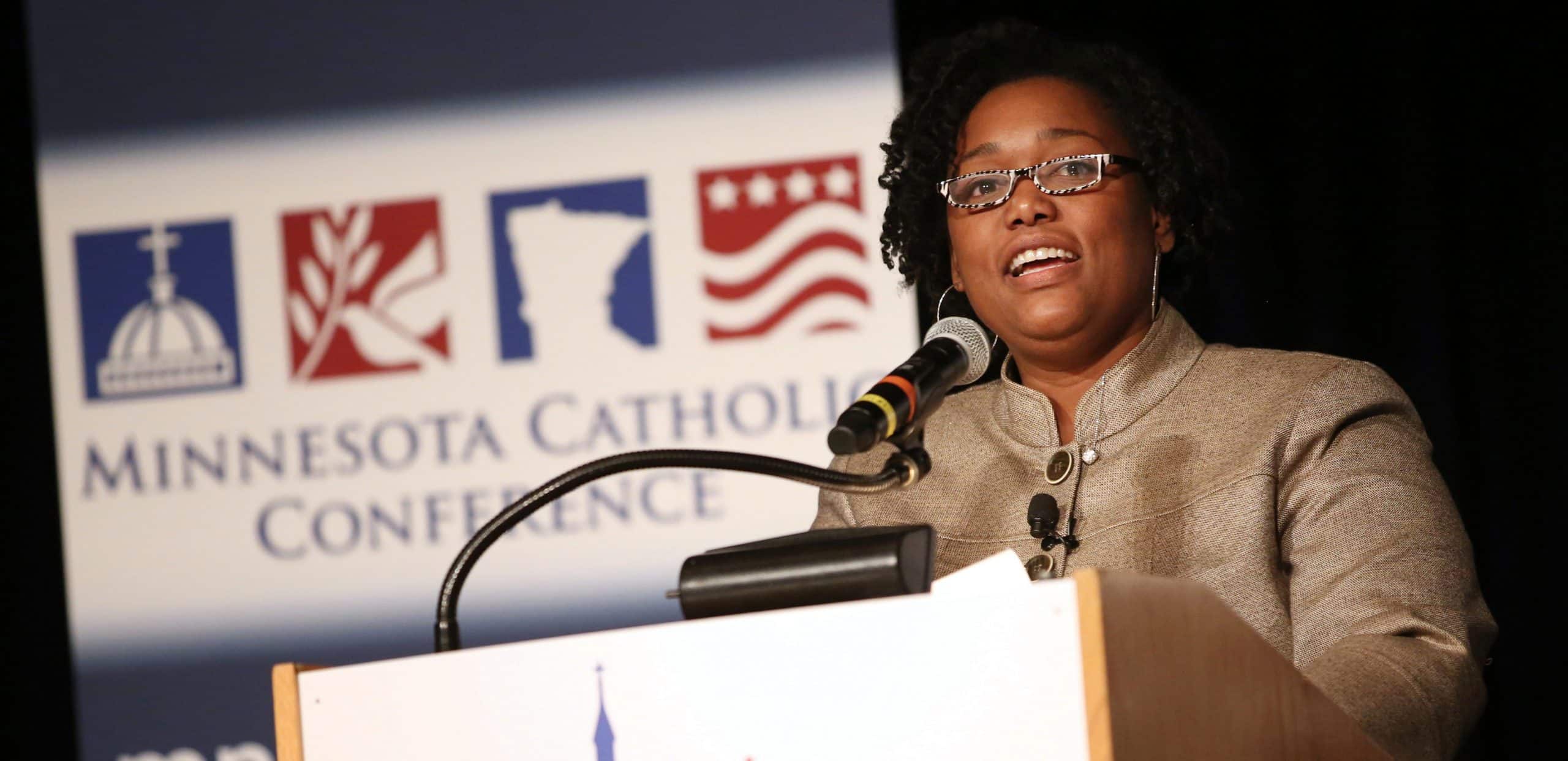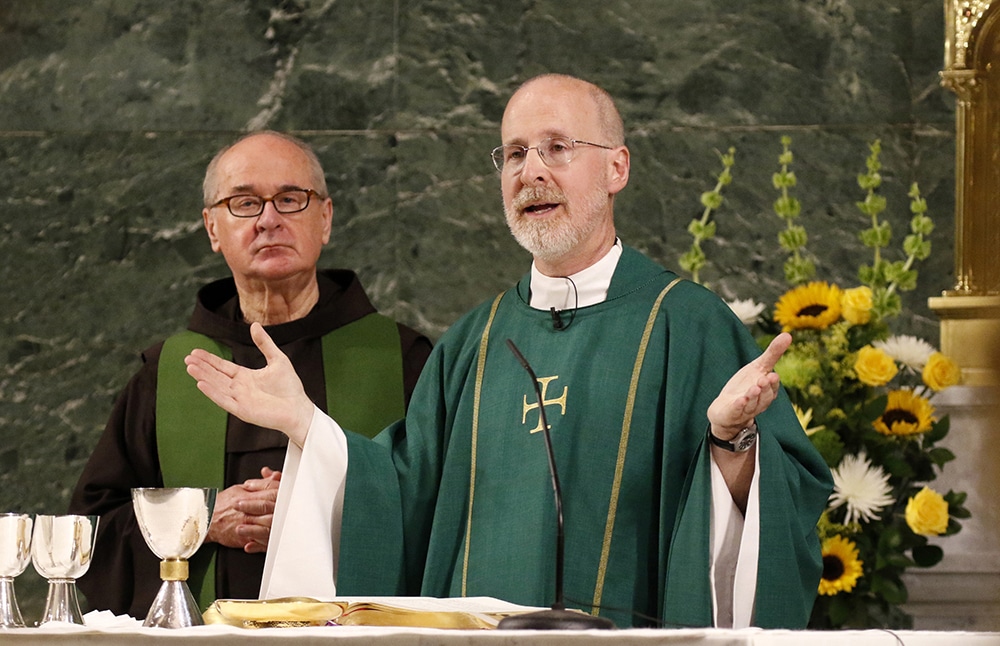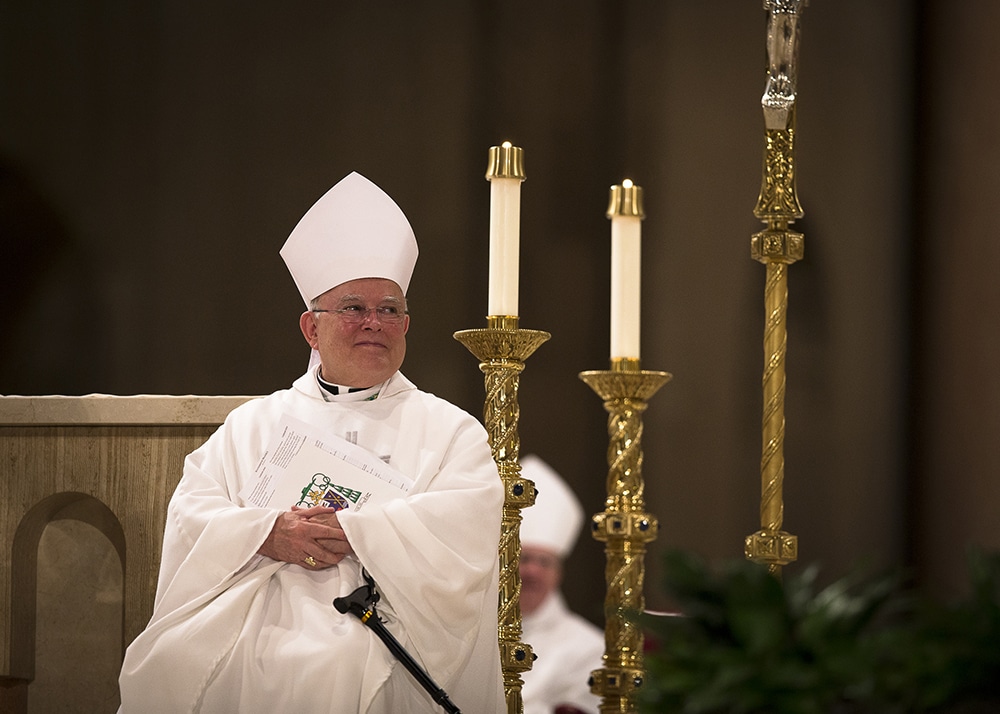We raise our voices frequently in these pages in a cry for civility. Too often in our communities, in political discourse and, without a doubt, in social media, we forget what it means to communicate with others in a manner fitting of their dignity.
This extends even to the members of the Body of Christ, who can sometimes be just as polarizing as political factions. Speaking to one another with a lack of charity and, sometimes, with a mob mentality has become a crisis of our time.
That’s why it was so refreshing to observe a recent exchange between Archbishop Charles J. Chaput of Philadelphia and Jesuit Father James Martin. The topic was one that could easily have led to a breakdown in civility and dialogue: how the Church ministers to those with same-sex attraction. What could have been a challenging exchange instead became one rooted in civility — without becoming watered down.
The dialogue began when Archbishop Chaput wrote a clear, articulate and charitable piece in response to a talk Father Martin gave in Philadelphia on Sept. 17. He began with charity, noting that “bitter personal attacks” on Father Martin “are inexcusable and unChristian.”
“Father Martin has sought in a dedicated way to accompany and support people with same-sex attraction and gender dysphoria,” he wrote. “Many of his efforts have been laudable, and we need to join him in stressing the dignity of persons in such situations.”
Having established a tone of charity, Archbishop Chaput went on: “At the same time, a pattern of ambiguity in (Father Martin’s) teachings tends to undermine his stated aims, alienating people from the very support they need for authentic human flourishing. Due to the confusion caused by his statements and activities regarding same-sex related (LGBT) issues, I find it necessary to emphasize that Father Martin does not speak with authority on behalf of the Church, and to caution the faithful about some of his claims.”
He went on to do so.
In a Facebook post, Father Martin acknowledged that Archbishop Chaput had sent him the column before he had published it, thanked him for that gesture and also “for the careful tone of your letter,” including “your asking people not to engage in ad hominem attacks.”
Having established a tone of graciousness, Father Martin went on to state clearly his own position.
“I’m sorry that you felt the need to publish (the column),” Father Martin wrote. “I think my main response is that it’s difficult to respond to critiques that I am ‘implying’ things, when I am assiduous in my writings and talks about not challenging Church teaching. I have written clearly about that (for America magazine).”
And he went on to make his own points.
“One of the reasons that I don’t focus on same-sex relations and same-sex marriage, which I know are both impermissible (and immoral) under Church teaching, is that LGBT Catholics have heard this repeatedly,” Father Martin wrote in part. “What I am trying to do instead is encourage Catholics to see LGBT people as more than just sexual beings, to see them in their totality, much as Jesus saw people on the margins, people who were also seen as ‘other’ in his time.”
Rather than ignoring Father Martin’s response, the editors of CatholicPhilly.com, the online newspaper of the Archdiocese of Philadelphia, posted it on their own website, with a short response by Archbishop Chaput below it.
“Father Martin and I emphatically agree that persons with same-sex attraction are children of God and well loved by him,” Archbishop Chaput wrote in part. “Thus they deserve to be treated with respect and dignity. The Church must earnestly seek to do that while remaining true to her convictions.”
Why did we feel the need to highlight such an exchange? Because it is an example of the road less traveled — one of respectful dialogue between two prominent churchmen with two very different opinions.
We have all too often observed the road frequently traveled — the breakdown of discourse, the personal attacks and the destruction of the Church at the hands of its own people from the inside out.
To that we say: No more. To exchanges like the one between Archbishop Chaput and Father Martin, we say, with great love for the Church: Yes, please.
Our Sunday Visitor Editorial Board: Gretchen R. Crowe, Scott P. Richert, Scott Warden, York Young

